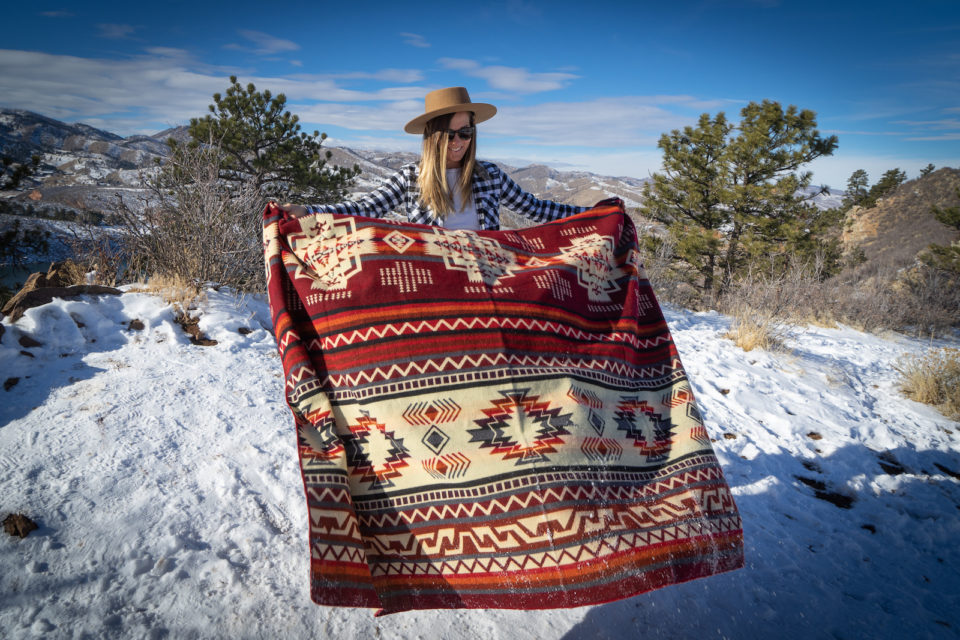The Local newsletter is your free, daily guide to life in Colorado. For locals, by locals. Sign up today!
Among the silver linings that have emerged from the COVID-19 cloud are stories of pandemic pivots: those nimble shifts (spurred by shutdowns, travel restrictions, supply-chain challenges, and more) to uncharted territories that turn out to be fruitful new business opportunities. Fashion designers started making masks, distilleries made hand sanitizers, and automakers used their factories to assemble ventilators.
But in March of 2020, when Brandon and LeAnn Morris first realized that their thriving, global adventure-travel company, FlashpackerConnect, would have to halt operations, pivoting to an entirely new business model was the last thing on their minds. Instead, they thought of their friends around the world, including the Andean textile-makers whose livelihoods depended upon dollars spent by tourists sent by travel companies like FlashpackerConnect.
That's only $1 per issue!
“Brandon and I wake up very early and have some good chats over coffee before our kids get up, and one morning, he mentioned that one of the Peruvian families we supported through FlashpackerConnect had suggested we take a couple of their blankets and see if we could sell them in America,” LeAnn recalls. “For us, taking in those few blankets felt like such a huge commitment. We had lost our income flow, and we didn’t know if we’d be able to sell them. But we decided to go for it, and those first 10 blankets quickly turned into 20. Then we started ordering by the 50s, and now we’re ordering 2,000 blankets at a time.”

Initially, the Morrises sold the alpaca-fiber textiles (which inspired their business name, Alpaca Threadz) via an online Shopify store, then from an Etsy shop. These days, the blankets (all handmade by craftspeople in Peru and Ecuador) are available online at alpacathreadz.com, or from nearly 300 retailers around the world (including Berkeley Supply, Timber Trade Co., Modern Nomad, Lulu’s Furniture & Décor, and Acme Fine Goods in the Denver metro area). “But it’s still just Brandon and me ferociously filling boxes,” says LeAnn, who stores the inventory in the basement of the family’s Fort Collins home. “We think we’ll need to find a warehouse and hire an employee in 2022 because the company has grown almost out of our bandwidth, which is really exciting,” she says.
And not just for the Morrises. The Andean craftspeople Alpaca Threadz partners with “are flourishing again,” LeAnn says—including families that specialize in sourcing the fibers, stretching and dyeing the wool, weaving and hand-finishing the blankets, and sourcing and making the leather labels. “And while we’re hoping tourism comes back, they don’t need it to survive anymore. They’re surviving from the income from these blankets.”
Each quarter, the Morrises send 10 percent of the company’s profits back to the communities they work with. “The last few checks have been used to purchase supplies and equipment for a school in Otavalo, Ecuador,” LeAnn says. “And our Christmas donation will be the biggest one we’ve made to date, because it has been a great quarter for us. Being able to enrich the lives of those students is very special.”
The beauty of the blankets is the icing on the cake. Most of the textiles are handmade from 50 percent alpaca fiber (some are 100 percent alpaca; a few are 100 percent wool), which LeAnn loves for its softness and resistance to water and dirt. “They don’t need to be washed very often,” she says. “You can just shake them out, lay them in the sun, and they’re good to go. We call one of our lines Camp blankets because we encourage people to bring them outside, use them on a hike or camping trip, and then bring them back inside, where they work really nicely as home decor.”

The designs range from a simple Peruvian alpaca motif to vibrant geometric patterns from Ecuador; prices range from $150–$300. And although the Morrises collaborate with their artisan partners on color palettes (the Ecuadorian blankets are available in more than 25 colorways; the Peruvian blankets come in 20 color options), the patterns, which are indigenous to the communities in which they were made, remain unaltered. “We feel that keeping those patterns is really important; it’s a way for our brand to recognize what the community has done,” LeAnn says. “They’ve been doing this for hundreds of years—and what started as something they made to keep their families warm is now something they’re able to share with the world.”










